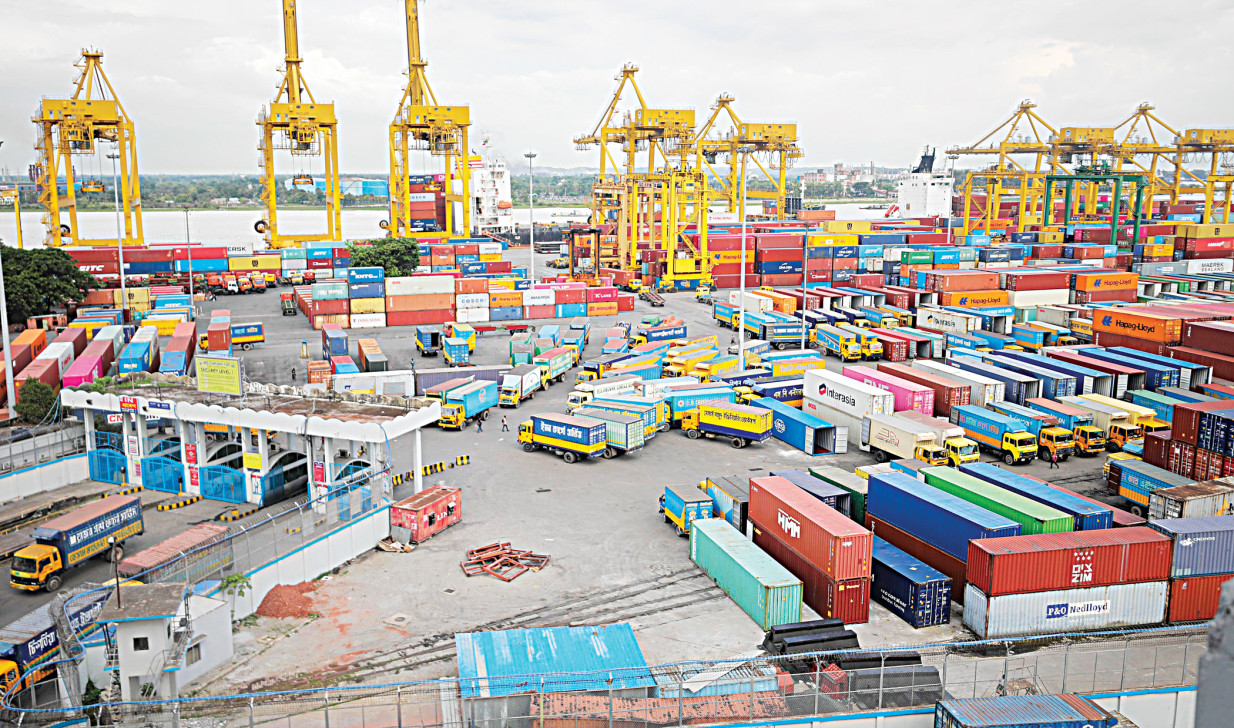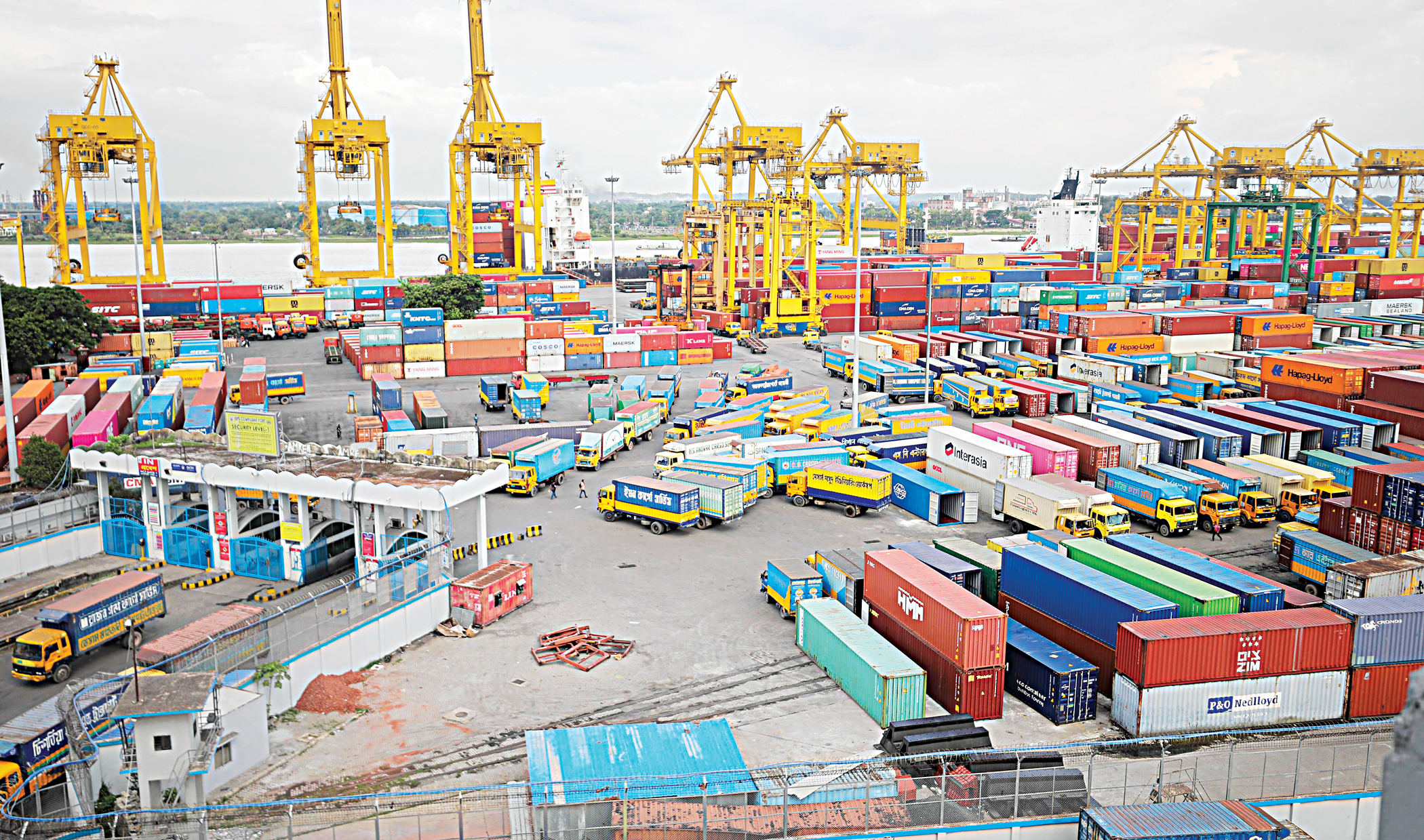How Bangladesh should ensure strategic port management

The journey toward sustainable development in Bangladesh is deeply linked with the strategic management of its land, sea, and air ports. In recent weeks, public debate has intensified over the government's decision to bring in foreign operators to manage key ports. In an era where globalisation is reshaping geopolitical realities, Bangladesh must re-evaluate how it governs these critical national assets. It is no longer just about infrastructure expansion; it is about how strategically, transparently, and efficiently we operate them for the betterment of the country keeping the security uncompromised.
Historically viewed as channels for imports and exports, ports today hold a far more complex identity as instruments of global competitiveness and a tool for diplomacy whereas security is seen as an important component. Bangladesh's major maritime gateways, Chittagong, Mongla, and Payra, and airport gateway like Hazrat Shahjalal International Airport (HSIA) are increasingly caught in the crosscurrents of regional power interests. Major regional powers including China, India, Japan, and the United States have each expressed varying levels of interest in port operations, among others.
This reality presents Bangladesh with a critical dual-edged challenge: how to modernise port infrastructure through foreign collaboration while preserving strategic sovereignty. Striking this balance is not optional. It is imperative.
While foreign partnerships promise greater efficiency and investment, they might also pose risks of undue influence, particularly if not carefully regulated. Strategic autonomy must be the cornerstone of port policy. Welcoming foreign investment requires robust regulatory oversight, clear contractual safeguards, and regular audits. Growth must not come at the cost of sovereignty.
With regards to airports, they are vital to Bangladesh's economic and strategic architecture. Hazrat Shahjalal International Airport (HSIA) in Dhaka, the primary air gateway, has long been plagued by mismanagement, from baggage delays to poor customer service. However, the construction of the third terminal, co-financed by the Japan International Cooperation Agency (JICA), is a promising shift. A Japanese consortium reportedly is set to operate the terminal.
On the other hand, operations at Chattogram Port, which handles around 90 percent of Bangladesh's maritime trade and ranks 64th globally by container throughput, still remain inefficient. Container handling times are higher than global average, and outdated logistics infrastructure, alongside syndicate control and political interference, continues to drag down performance. However, any foreign or local partnership with regard to port operations must be vetted against national interests, with efficiency and integrity as the guiding principles. What's needed is institutional transparency and professionalism.
Regarding land ports, Benapole, Hili, Akhaura, and Burimari are crucial conduits for regional trade, particularly with India, Nepal, Bhutan, and Myanmar. In FY 2023–24, trade with India alone reached nearly $14.01 billion, and 40 percent of the trade takes place through land ports.
Yet these facilities suffer from operational inefficiencies, irregular customs practices, and rising security threats, particularly along the Myanmar border. Port governance here must be a joint exercise involving customs, home affairs, and defence, anchored in national security priorities.
The politics of port governance
The question of who controls our ports must rise above partisan politics. Strategic infrastructure management demands national consensus and long-term vision. Overdependence on any single factor, whether it is foreign or local, can compromise our national interest. Diversifying partnerships, across Europe, Middle East, South Asia, and East Asia, can spread risk, attract broader investment, and maintain diplomatic balance. The presence of reputable global operators often boosts investor confidence, but their engagement must serve our national interests. To secure both economic gains and national security, port governance must be reimagined through the following core priorities.
i) Firstly, ports must operate with modern logistics systems to reduce costs, improve turnaround times, and enhance global competitiveness. Reviewing successful global models can offer insights into operational excellence; ii) national security must not be compromised in pursuit of investment. Legal safeguards, ownership control, and policy independence are critical when engaging foreign operators; iii) investment in automation, digital tracking, and AI-based logistics is essential. A tech-savvy workforce and infrastructure upgrade will future-proof Bangladesh's ports.
In addition, iv) development must include environmental safeguards and benefit port-adjacent communities. Job creation, displacement management, and eco-friendly practices should be embedded in planning; v) outdated or fragmented legal frameworks must be replaced with streamlined laws aligned with international standards to attract credible investors and improve operational efficiency; and lastly vi) policies must be shaped through a collaborative process involving political parties, government agencies, business leaders, and civil society to ensure transparency and broad-based ownership.
Ports are no longer peripheral, rather, they are central to Bangladesh's economic trajectory, geopolitical relevance, and national dignity. Their management must reflect this reality. It is time for Bangladesh to approach port governance with unity, strategic foresight, and a commitment to sovereign progress. Through balanced, transparent, and autonomous leadership, we can anchor our future firmly in the national interest while navigating the global tides.
Alauddin Mohammad is joint member secretary of National Citizen Party (NCP) and executive director at Institute of Policy, Governance and Development (IPGAD).
Views expressed in this article are the author's own.
Follow The Daily Star Opinion on Facebook for the latest opinions, commentaries and analyses by experts and professionals. To contribute your article or letter to The Daily Star Opinion, see our guidelines for submission.




 For all latest news, follow The Daily Star's Google News channel.
For all latest news, follow The Daily Star's Google News channel. 

Comments